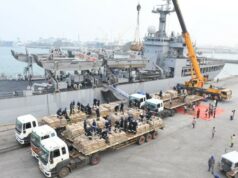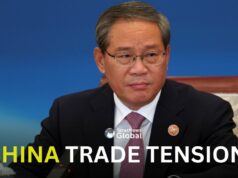There’s been relative calm in Nepal after the tumultuous events of the past few days. Latest reports say the ‘Gen-Z’ protestors have settled on Kul Man Ghising, credited with solving Nepal’s electricity crisis, as the person to lead the interim government.
Ghising turned around the functioning of the Nepal Electricity Authority which he had headed. He is regarded as honest, apolitical and pragmatic.
But the situation remains fluid given reports of dissensions among those involved in finding a solution to the current crisis.
India, apart from expressing concern and appealing for calm, has preferred to stay quiet, reflecting its need to be seen on the side of popular aspirations.
“India has always supported the will of the Nepalese people for multiparty democracy, for inclusion, for the kind of system they wanted,” Ranjit Rae, told StratNewsGlobal. “This has been India’s consistent policy over many, many decades. This is the same policy that has to continue and support whatever Nepal wants.”
“For India, the relationship has been very, very deep, and very strategically significant as well. We have open borders. So if Nepal is destabilized, it becomes vulnerable to, you know, external elements that may be inimical to Nepal’s interests and to India’s interests. It’s a very critical relationship. For India, our strategy has always been peace, stability and progress.”
Rae who penned a book titled Kathmandu Dilemma: Resetting India Nepal Ties, says the two countries are linked not only through the cultural, spiritual, religious and people to people linkages, but also in terms of infrastructure connectivity and joint projects.
“Our strategy has always been to work with whichever system is in power and to support what the people of Nepal want. That remains and that will continue,” he added.
Open Border An Asset
Having open borders with Nepal has proven to be “huge strategic asset” for India, according to Rae.
“Open borders and the people to people connect is the very fundamental basis of the relationship. And the open border is a huge strategic asset between our two countries,” he said.
“From time to time, the open borders were misused by certain elements. We know what has happened in the past when some infiltrators from Pakistan (came in) and so on. But to address that, we cannot close the border by erecting fences,” he said, adding, there has to be smart policing, good intelligence cooperation between the two countries, good border guarding and cooperation between border guarding forces.
He highlighted that the relationship between India and Nepal is “critical for both India and Nepal.”
“So whichever dispensation you have in either of the two countries has to work together – whether it’s the older generation, whether it’s Gen Z or any other system or framework. It is critical for both countries that you have to work together. That is a fundamental element,” he said.




